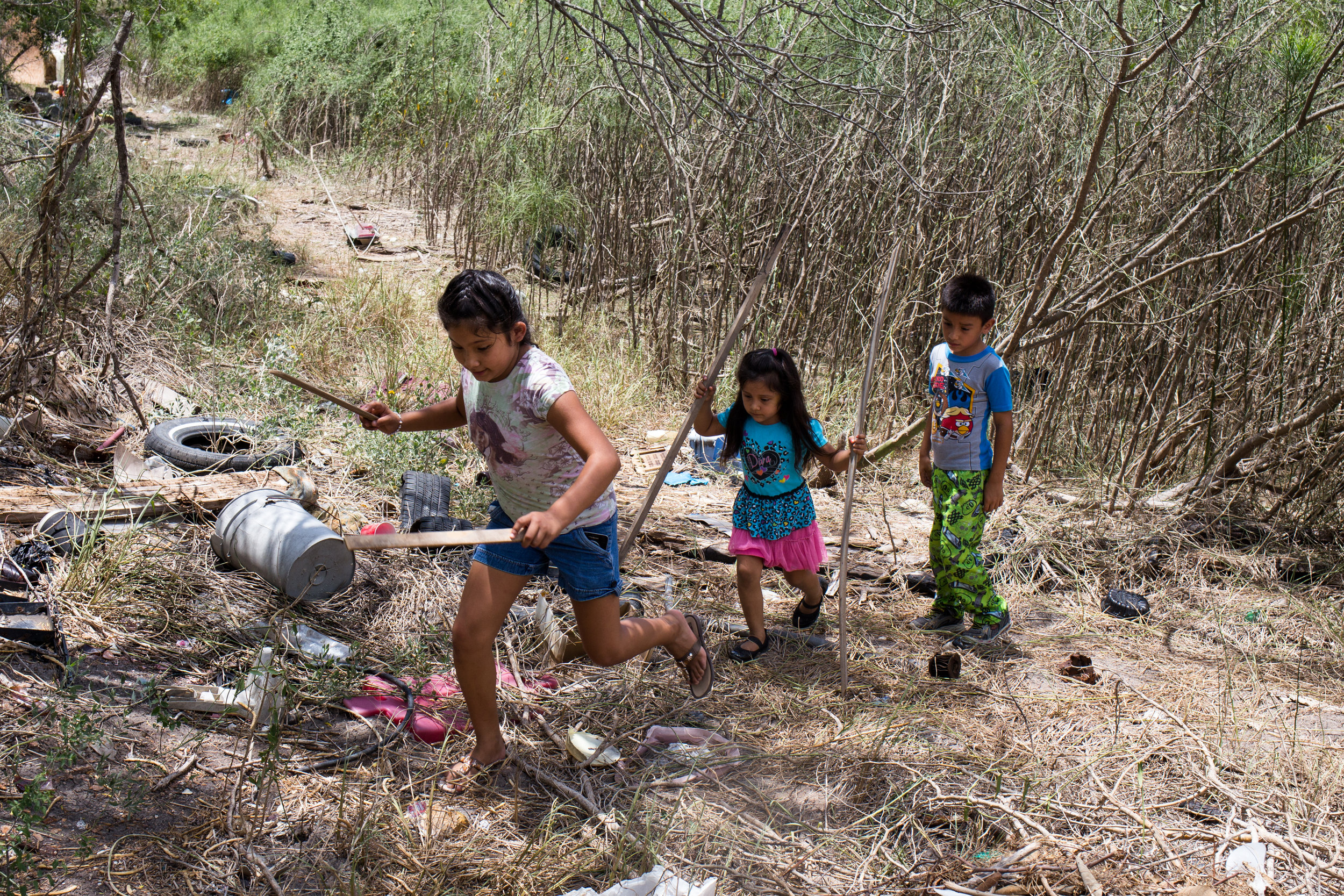
Alondra, Ashlee, and A.J. play in the property behind their grandmother’s home along the Texas-Mexico border. The children live in a colonia — a type of informal settlement that floods often and lacks a combination of electricity, paved roads, water and sewage systems. Approximately half a million low-income, immigrant Latinos live along the Texas-Mexico border in almost 3,000 colonias.

Teresa de la Zoya, 69, looks out the back door of her mobile home located in the border colonia of Indian Hills, Texas. Her home lacks centralized air conditioning in a place where summer temperatures usually rise above 100 degrees.

One of Teresa’s grandchildren, A.J., walks past the laundry room door that stays open to keep the house cool, regardless of a constant mosquito presence. Because colonias often lack drainage systems, standing water and piles of debris become a breeding ground for virus-transmitting pests and rodents.

Teresa’s grandchildren, Jennifer and Uriel, rest from the heat in a bedroom of the family’s mobile home.

Teresa’s grandchild, Ashlee, has scars and open wounds on her feet from frequently playing outdoors without shoes on. She’s a carefree child, Teresa said in Spanish. “It comes with its consequences, but it never seems to stop her.”
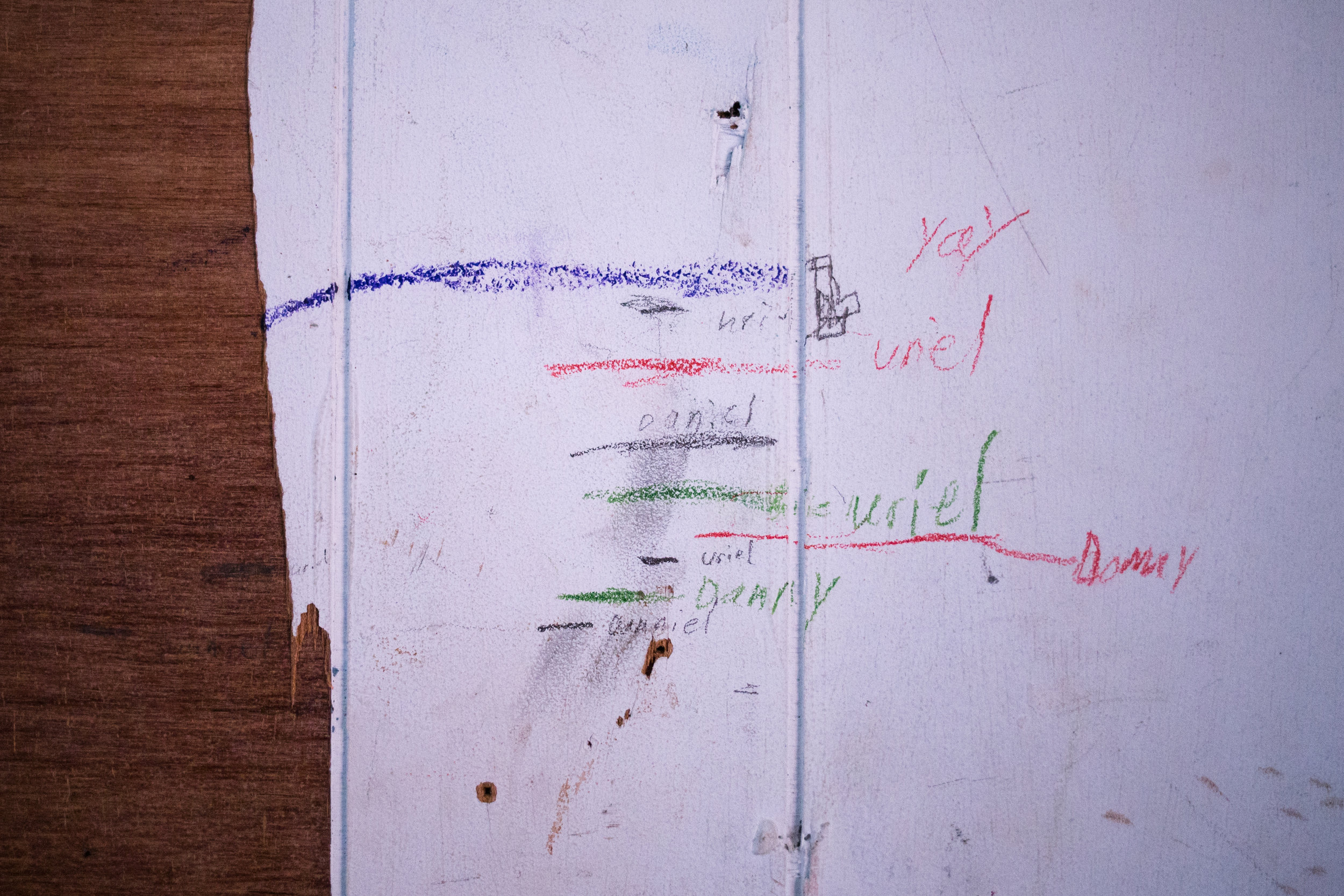
The names and height-markers of Teresa’s grandchildren adorn the children’s bedroom wall. The family home houses Teresa, her adult daughter, and six grandchildren.
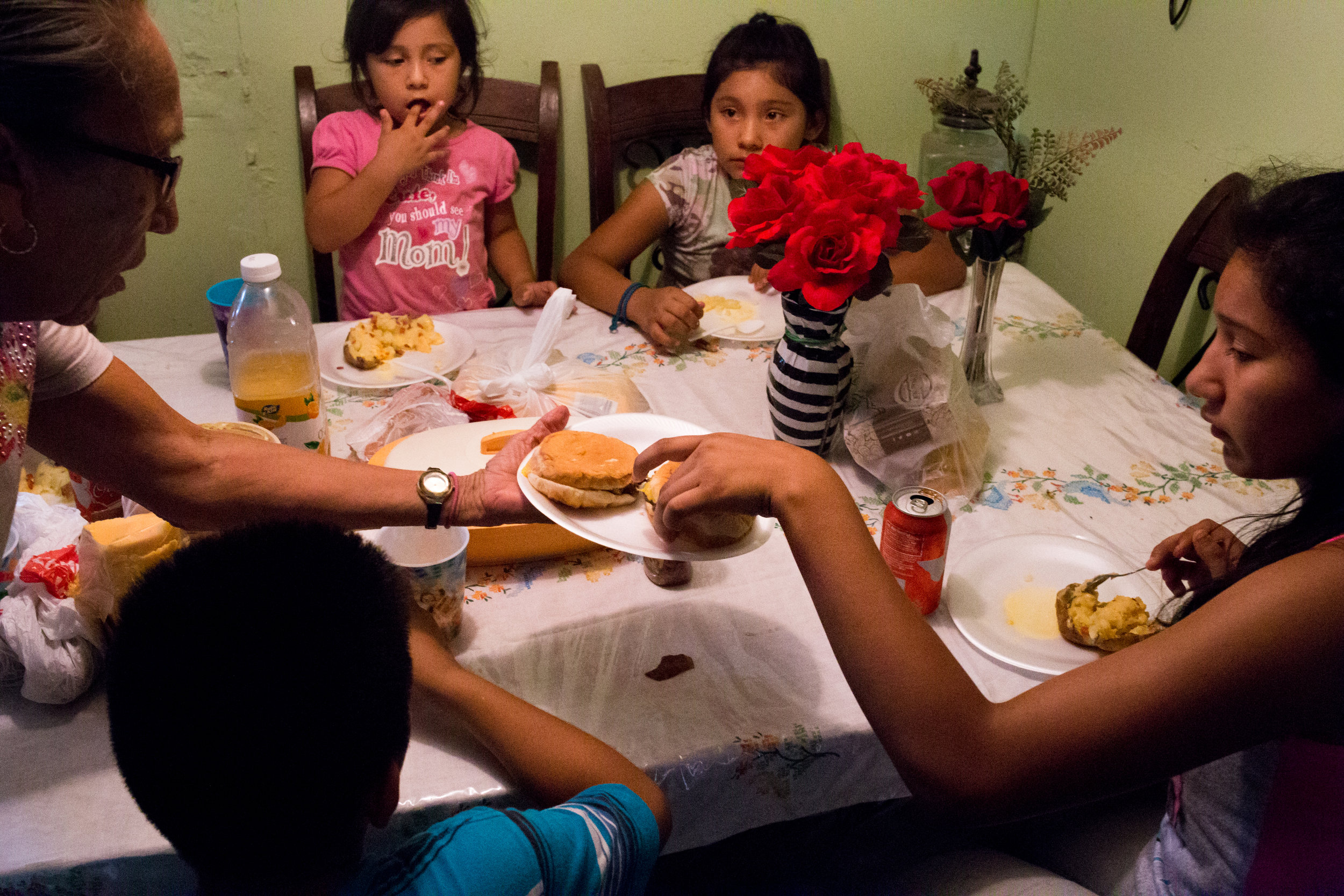
Teresa feeds her six grandchildren meals prepared with food bank supplies or church meal program leftovers. Teresa’s adult daughter works as a medical assistant and is the only financial provider for the home while Teresa watches her daughter’s children.
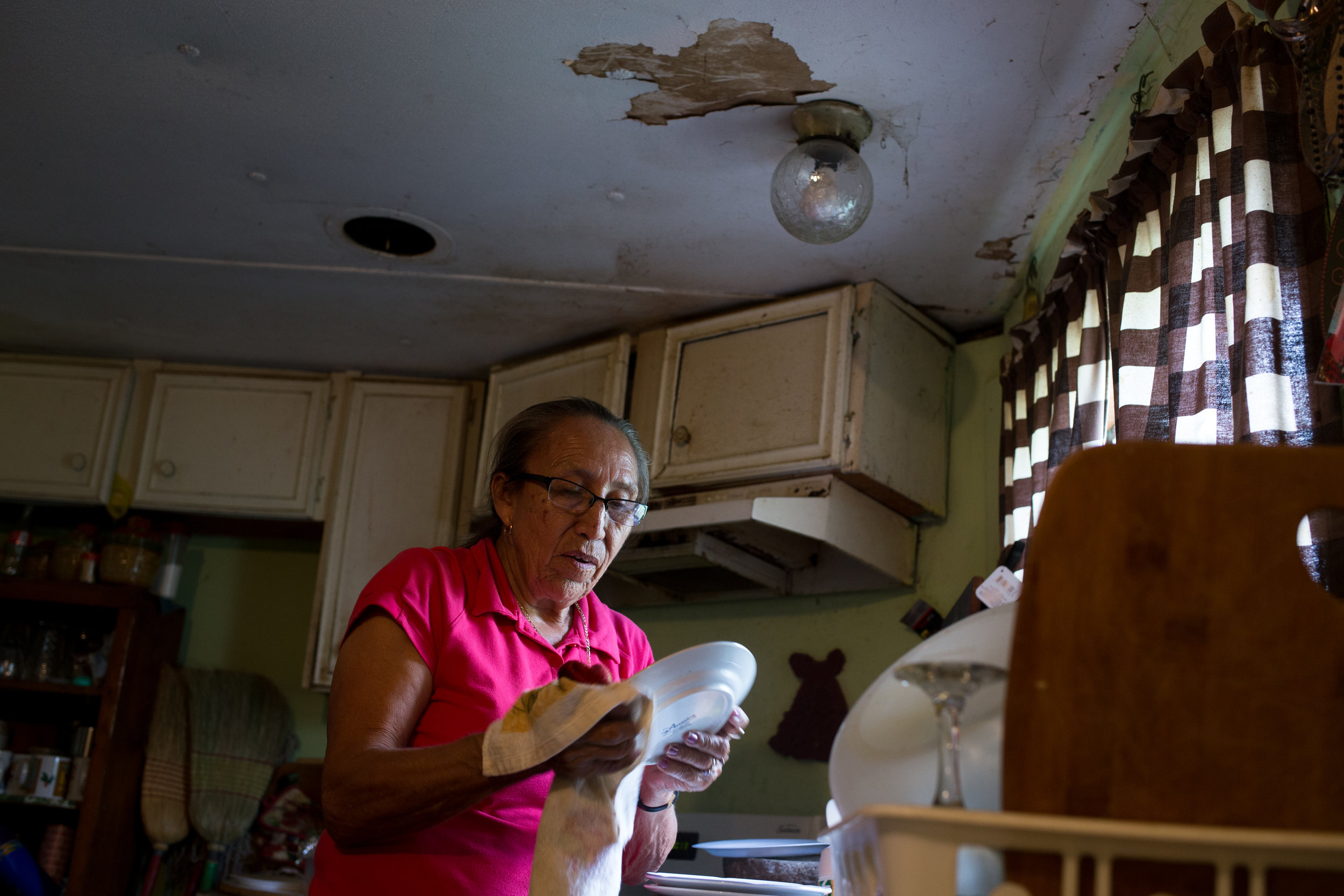
Teresa washes dishes after feeding her grandchildren lunch. Heavy rains and floods each year have damaged the ceiling, foundation and floors of the mobile home Teresa bought 18 years ago for $8000. She said she wouldn’t be able to afford monthly payments for a new house, even if local non-profits could offer one at a low monthly rate.
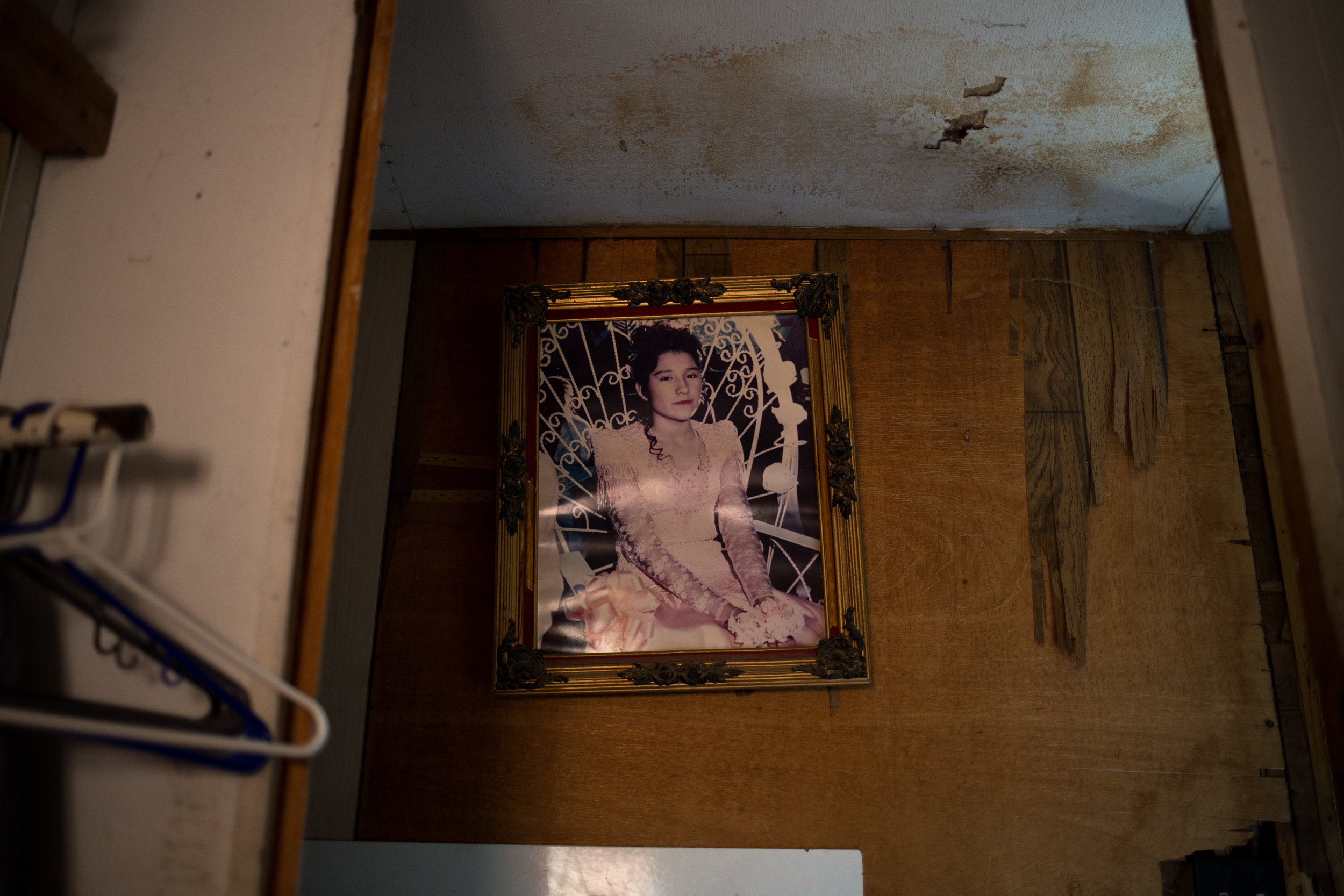
A photograph of Teresa’s daughter hangs in a visibly water-damaged hallway.
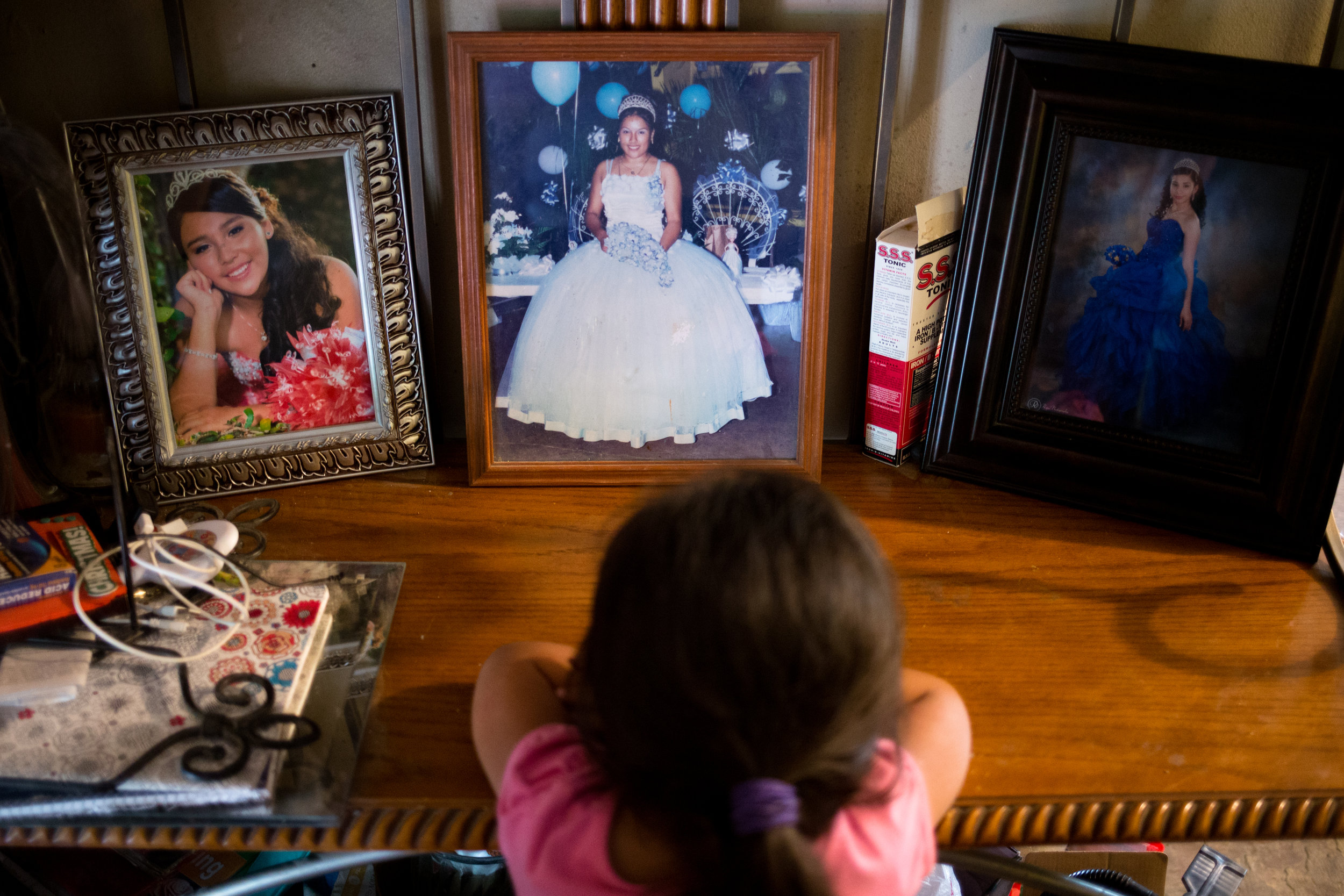
Ashlee, 4, looks at photos of her mother and other female relatives at their quinceañeras, a fifteenth birthday celebration commonly celebrated among Mexicans and Mexican-Americans along the border. Ashlee's mother works as a full-time medical assistant, relying on her Teresa to watch her four children during the summer since they cannot afford childcare.
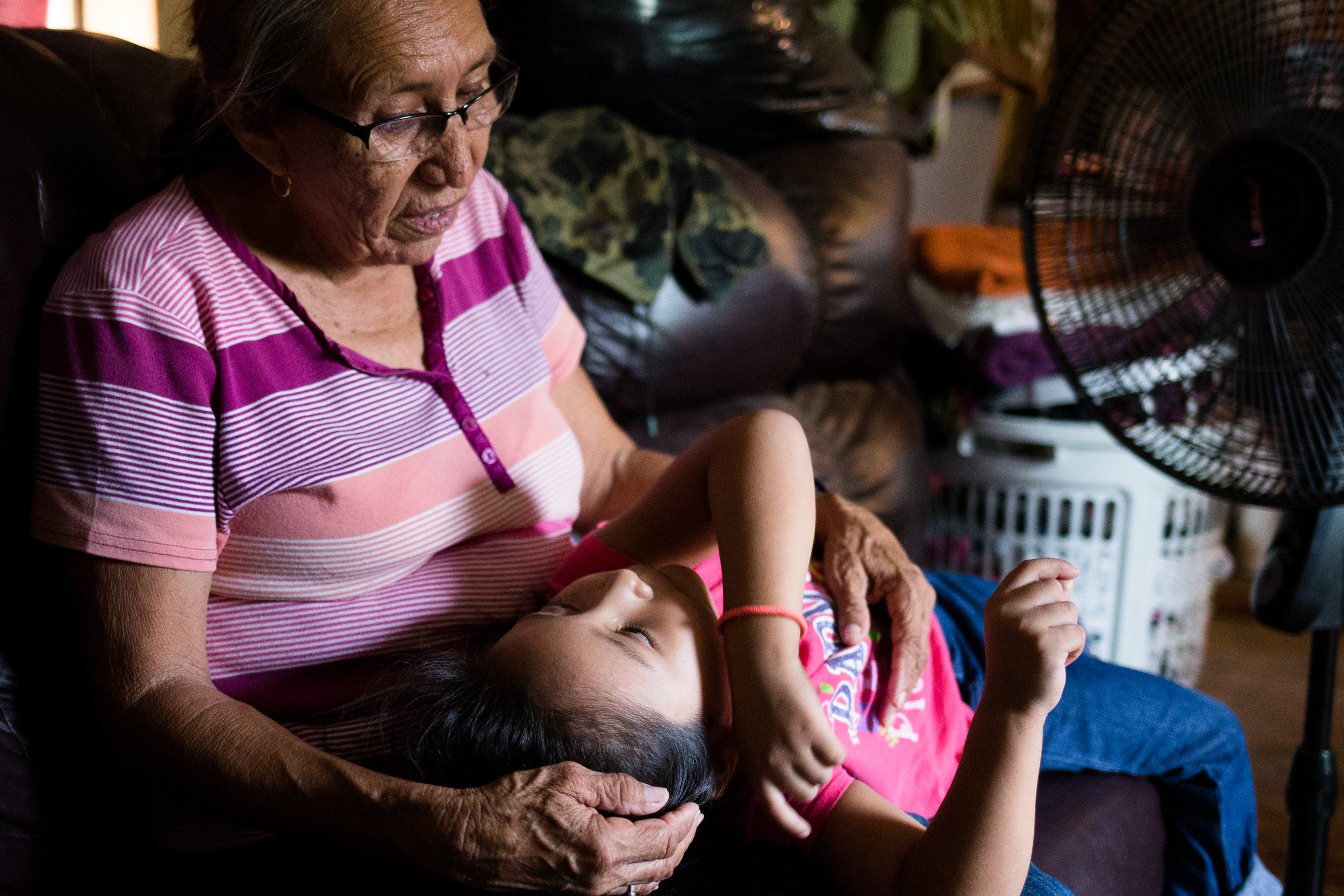
Teresa and her grandchild, Ashlee, rest for a moment by one of three fans used to keep the heat at bay in their poorly insulated mobile home. Teresa quit her job as a home care provider to care for her children, but she and her adult daughter struggle to pay utility bills as a result.

Three of Teresa’s grandchildren, Alondra, A.J. and Jennifer, play games on their disconnected cell phones. Their favorite game to play is Minecraft, which allows players to build their own dream homes.

Teresa does a load of laundry for the eight people living in her three bedroom-two bathroom mobile home. She quit her job as a home care provider to take care of her six grandchildren during the summer break -- a decision that drastically impacted the family's income.

Jennifer, 13, is the oldest of Teresa's grandchildren living with her after her mother was jailed. She is quick to help Teresa with laundry and other chores but says the move into the colonia has been difficult for her. She shares an air mattress with her younger sister on the living room floor.

Teresa’s grandchild, A.J., plays outside the family’s mobile home. Regardless of the poverty-related challenges facing Teresa’s family, her home is filled with the aroma of home-cooked meals and the chatter of children playing. Teresa said she hopes the far-away politicians in charge keep in mind the families living in colonias.















Alondra, Ashlee, and A.J. play in the property behind their grandmother’s home along the Texas-Mexico border. The children live in a colonia — a type of informal settlement that floods often and lacks a combination of electricity, paved roads, water and sewage systems. Approximately half a million low-income, immigrant Latinos live along the Texas-Mexico border in almost 3,000 colonias.
Teresa de la Zoya, 69, looks out the back door of her mobile home located in the border colonia of Indian Hills, Texas. Her home lacks centralized air conditioning in a place where summer temperatures usually rise above 100 degrees.
One of Teresa’s grandchildren, A.J., walks past the laundry room door that stays open to keep the house cool, regardless of a constant mosquito presence. Because colonias often lack drainage systems, standing water and piles of debris become a breeding ground for virus-transmitting pests and rodents.
Teresa’s grandchildren, Jennifer and Uriel, rest from the heat in a bedroom of the family’s mobile home.
Teresa’s grandchild, Ashlee, has scars and open wounds on her feet from frequently playing outdoors without shoes on. She’s a carefree child, Teresa said in Spanish. “It comes with its consequences, but it never seems to stop her.”
The names and height-markers of Teresa’s grandchildren adorn the children’s bedroom wall. The family home houses Teresa, her adult daughter, and six grandchildren.
Teresa feeds her six grandchildren meals prepared with food bank supplies or church meal program leftovers. Teresa’s adult daughter works as a medical assistant and is the only financial provider for the home while Teresa watches her daughter’s children.
Teresa washes dishes after feeding her grandchildren lunch. Heavy rains and floods each year have damaged the ceiling, foundation and floors of the mobile home Teresa bought 18 years ago for $8000. She said she wouldn’t be able to afford monthly payments for a new house, even if local non-profits could offer one at a low monthly rate.
A photograph of Teresa’s daughter hangs in a visibly water-damaged hallway.
Ashlee, 4, looks at photos of her mother and other female relatives at their quinceañeras, a fifteenth birthday celebration commonly celebrated among Mexicans and Mexican-Americans along the border. Ashlee's mother works as a full-time medical assistant, relying on her Teresa to watch her four children during the summer since they cannot afford childcare.
Teresa and her grandchild, Ashlee, rest for a moment by one of three fans used to keep the heat at bay in their poorly insulated mobile home. Teresa quit her job as a home care provider to care for her children, but she and her adult daughter struggle to pay utility bills as a result.
Three of Teresa’s grandchildren, Alondra, A.J. and Jennifer, play games on their disconnected cell phones. Their favorite game to play is Minecraft, which allows players to build their own dream homes.
Teresa does a load of laundry for the eight people living in her three bedroom-two bathroom mobile home. She quit her job as a home care provider to take care of her six grandchildren during the summer break -- a decision that drastically impacted the family's income.
Jennifer, 13, is the oldest of Teresa's grandchildren living with her after her mother was jailed. She is quick to help Teresa with laundry and other chores but says the move into the colonia has been difficult for her. She shares an air mattress with her younger sister on the living room floor.
Teresa’s grandchild, A.J., plays outside the family’s mobile home. Regardless of the poverty-related challenges facing Teresa’s family, her home is filled with the aroma of home-cooked meals and the chatter of children playing. Teresa said she hopes the far-away politicians in charge keep in mind the families living in colonias.
